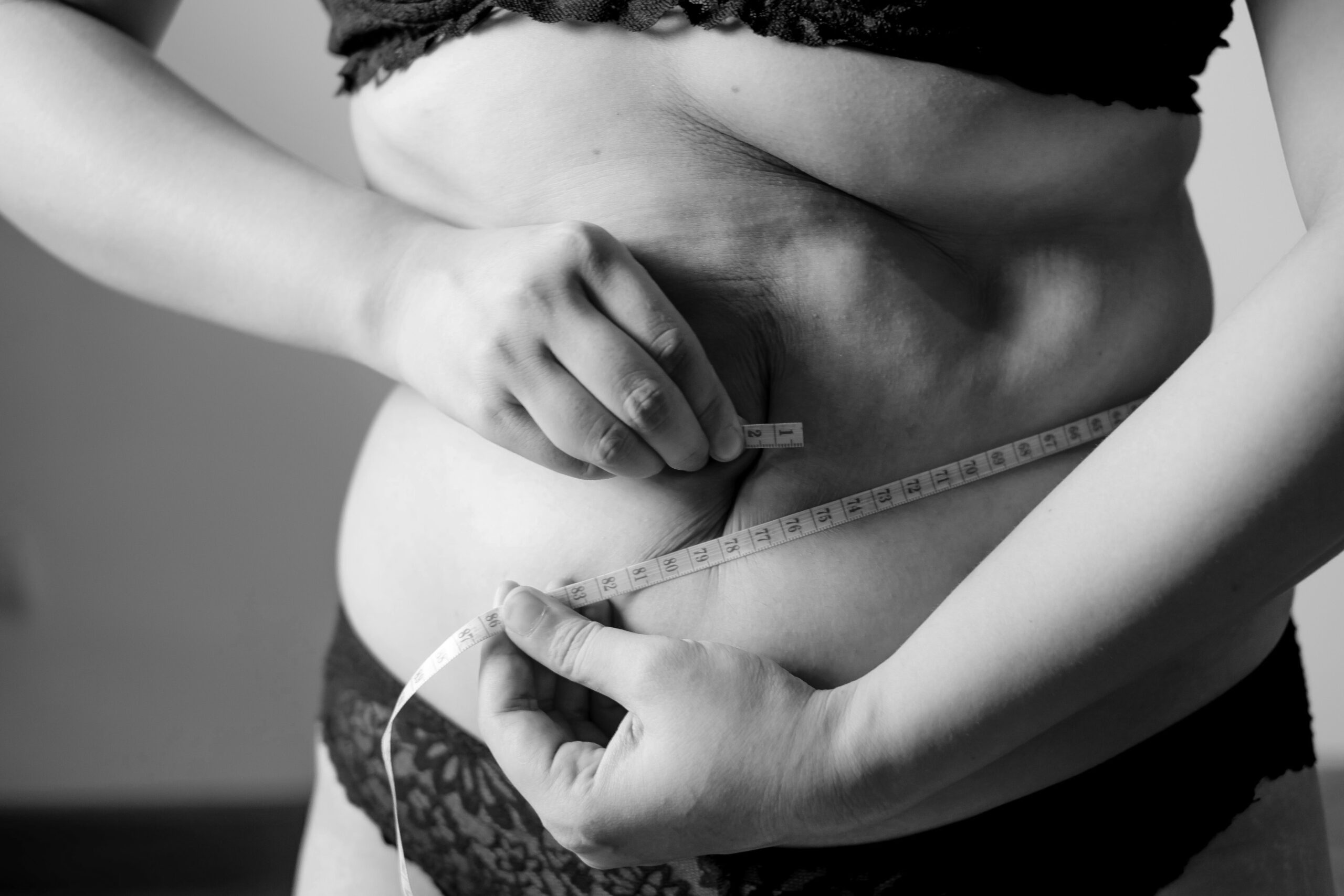
Can Mounjaro be used for menopausal weight gain?
In this article
What's the lowdown?
Weight gain (and struggling to lose weight), in the perimenopause and menopause period, is a common issue.
There are lifestyle and dietary measures that may help with this, but increasingly, women are considering whether Mounjaro may help them.
It is important to consider the potential side effects of these drugs and how they might interact with other medications you are taking.
Medication should always be used alongside diet and lifestyle measures that support your overall health around the time of menopause.
What is menopausal weight gain?
During perimenopause and menopause, the two main female hormones (oestrogen and progesterone), change and gradually decline. Weight gain is a common issue for women in this period of their lives, with up to 50% reporting that they had gained weight1. In fact, the average weight gain is thought to be around 1.5kg per year during perimenopause1.
In the perimenopause and menopause period, as oestrogen levels fall, the way our bodies process food that we eat changes. Essentially, the rate at which we burn calories reduces, which can lead to more fat build up. This can lead to weight gain, which many people notice around their waist line and lower back1,2.
Because weight gain around perimenopause and menopause is so common, you may be wondering whether semaglutide for menopausal weight gain is an option to help maintain a healthy weight.
What is Mounjaro?
Mounjaro is a recently-developed medication in a class of drug called dual GIP (gastro-inhibitory polypeptide) and GLP-1 (glucagon-like peptide) receptor agonists. Drugs in this class act to mimic the action of two hormones that naturally occur in the body. The drug’s generic name is tirzepatide.
Tirzepatide was initially developed for people with type 2 diabetes but has more recently been used for people who are overweight to help them lose weight.
How does Mounjaro work?
- GLP-1 is a naturally-occurring hormone which occurs in the body . This hormone acts to reduce blood sugar by encouraging your body to produce more insulin after you have eaten. Mounjaro mimics the action of this hormone.
- GLP-1 also encourages your liver to produce less sugar.
- Tirzepatide also slows down the rate at which food leaves your stomach. Your stomach is therefore full for longer. This sends a signal to your brain which decreases your appetite.
- These two actions mean that people taking tirzepatide usually feel less hungry, leading to a lower overall calorie intake, and therefore, weight loss.
Tirzepatide is given as a weekly injection which you can administer yourself at home.
If you are researching this topic, you will notice that Mounjaro acts to mimic the same hormone (GLP-1) that other weight loss injections such as Wegovy and Ozempic do. Mounjaro is slightly different as it also mimics the action of the GIP hormone. At the moment, researchers aren’t sure of the full extent of what GIP hormones do.
How could weight loss injections be used for reducing menopausal weight gain?
Although there is no specific research on Mounjaro’s effects exclusively in menopausal women, its effectiveness in promoting weight loss and improving blood sugar control is well documented. It is important to note that Mounjaro has a specific license3;
- For people who have a body-mass index (BMI) of 30kg/m² or more
- For people who have a BMI of 27-30kg/m² and also have a weight-related health problem (for example high blood pressure, high cholesterol, or heart problems)
Therefore, Mounjaro can’t be used to prevent weight gain, but can be used if your weight is already high, to help get it back down to a healthy range.
Is Mounjaro, Ozempic, or Wegovy better for menopause?
No specific studies have been done which compare whether Mounjaro, Ozempic or Wegovy is better to help with weight gain around the time of the menopause. Or whether these drugs may have additional benefits for menopausal women beyond weight loss.
In a study that looked at how effective Mounjaro is for weight loss, it was found that at the highest doses, people lost up to 22.5% of their body weight. The same study found that 89% of people lost at least 5% of their starting weight4,5.
A separate study looking at how effective Wegovy is for weight found that at the highest doses, people lost up to 15% of their body weight and up to 85% of patients lost at least 5% of their starting weight6.
As you can see, these two studies have very similar results. Your choice of medication may therefore depend on a number of other factors, such as your medical history, or which one you would like to try!
In the UK, the license for using Ozempic to aid weight loss is only for patients who also have type 2 diabetes. Therefore, if you don’t suffer from diabetes but want to use weight loss medication, Wegovy or Mounjaro may be more likely to be prescribed.
Are there any potential side effects of Mounjaro?
As with all medications, tirzepatide (Mounjaro) can cause side effects. Some of these are more common than others.
Common side effects (that may affect up to 1 in 10 people taking the drug), include7;
- Diarrhoea
- Nausea (feeling sick)
- Vomiting
- Tummy pain
- Constipation
Rarer, but more serious, problems include gallbladder disease, inflammation of the pancreas and kidney issues.
The manufacturers of tirzepatide also state that in theory, there is a risk of the drug causing a type of thyroid cancer. Therefore, you can not take this medication if you have a personal or a family history of thyroid cancer.
Can you use Mounjaro if you take HRT?
The short answer is yes, you can. However, as with all medications, there are a few very important points to bear in mind.
Everyone who is taking oestrogen as part of their HRT must also be using progesterone. This is because taking oestrogen on its own increases your risk of endometrial cancer (cancer of the lining of the womb). This progesterone can be given as a patch, as tablets, or through a hormonal coil (Mirena, Levosert or Benilexa).
The British Menopause Society is concerned that women using Mounjaro, Ozempic or Wegovy may not absorb oral progesterone as well8. Therefore, they suggest that if you are using tablet forms of progesterone (for example Utrogestan or Gepretix) as part of HRT, you should either:
- switch to a transdermal combined HRT patch or a hormonal coil8
- Increase your oral progesterone dose for 4 weeks after starting your weight loss injection and for 4 weeks after each dose increase
If you are using Mounjaro and are post-menopausal (i.e you have not had a menstrual period for 12 months), you should always see your doctor if you have ANY vaginal bleeding.
What other treatments and lifestyle changes could be useful for menopausal weight gain?
Of course, whilst medication may help many women shed the pounds around menopause, it is not the right option for everyone. It should also be used carefully alongside healthy nutrition and exercise. Here are a few ideas (besides medication) which may help you:
- Regular exercise, that works your heart, muscles and joints, is crucial. Aim to get your heart rate up to over 150 beats per minute and keep it there for around 30 minutes, five times per week9,10. If doing this five times a week doesn’t fit in with your schedule, you could try building up 150 minutes of exercise over fewer sessions.
- You should make sure that your diet contains adequate protein (ideally about a quarter of each meal1. This helps keep you full, keeps your blood sugar stable, and helps you to build muscle through exercise.
- Reducing your stress level in the perimenopause period is also important, as stress causes our bodies to release cortisol (the stress hormone) which can worsen insulin resistance and lead to further weight gain.
- Prioritise good quality sleep. This helps your body recover fully between workouts and to build healthy muscle, which in turn aids weight loss.
Weight gain around the time of menopause can be a real battle for many women. Diet and lifestyle changes may help, but if you think you may be eligible for treatment with Mounjaro and want to try it, speak to a doctor or pharmacist. Currently, the main options to access this treatment is via NHS weight loss services or through private providers. is really important to make sure you consider whether this is right for you, particularly if you are using other medications such as HRT.
Our medical review process
This article has been medically reviewed for factual and up to date information by a Lowdown doctor.






